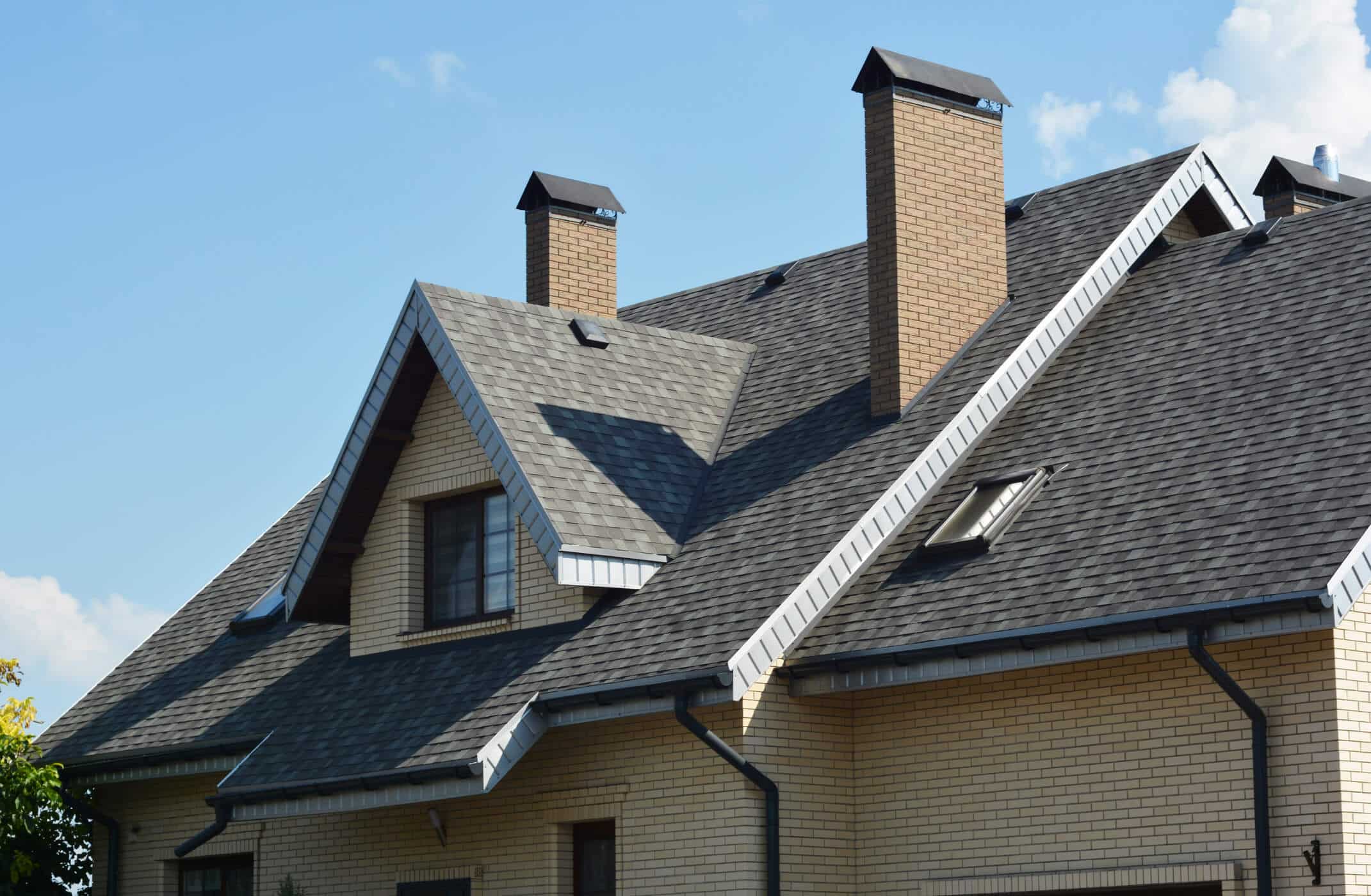
Replacing your roof isn’t exactly the most glamorous home upgrade, but when leaks start dripping or shingles go missing, it quickly jumps to the top of the to-do list.
So, how much does a new roof cost? That’s the million-dollar (well, hopefully not) question for homeowners in Atlanta and beyond. Roofing prices can feel like a moving target, shaped by materials, labor, square footage, and even the quirks of Georgia’s unpredictable weather.
But before you brace for sticker shock or fall into the “Google rabbit hole” of conflicting price estimates, let’s break it down clearly, locally, and with a few pro tips that might just save you thousands.
Because when it comes to protecting your home, your roof deserves more than guesswork. Keep reading to learn what you can realistically expect to pay as a homeowner in Atlanta, and how to make every dollar count.
The Average Cost of a New Roof in Atlanta
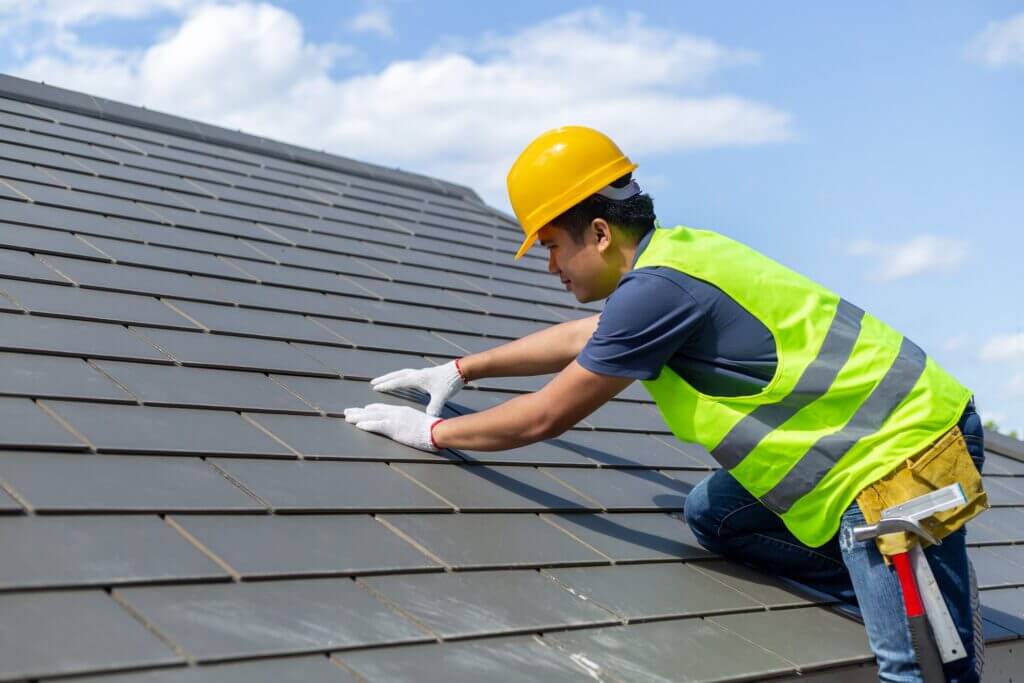
When considering how much a new roof costs in Atlanta, it’s essential to understand the various factors that influence pricing. From the size of your home to regional cost drivers like labor and permitting, several elements come into play.
Breaking Down Costs by Home Size
In Atlanta, the cost of a new roof varies significantly based on the size of your home. Here’s a general breakdown:
- 1,000 sq. ft.: Approximately $4,100 to $6,500
- 1,500 sq. ft.: Around $6,200 to $9,700
- 2,000 sq. ft.: Between $8,200 and $12,900
- 2,500 sq. ft.: Roughly $10,300 to $16,100
- 3,000 sq. ft.: Estimated at $12,300 to $19,400
- 3,500 sq. ft.: Approximately $14,400 to $22,600
- 4,000 sq. ft.: Around $16,400 to $25,800
These estimates are based on asphalt shingle roofs, which are the most common in the area. Keep in mind that these estimates are very generalized, meaning that your pricing may be different. These prices are based on online anecdotal research and our own experience.
Regional Cost Drivers: Labor, Materials, and Permitting
Several regional factors also influence roofing costs in Atlanta:
- Labor Costs: Skilled labor is a significant component, with experienced crews charging more but often providing better quality and efficiency.
- Material Prices: The choice of materials, from asphalt shingles to premium options like slate, greatly affects the overall cost.
- Permitting: Obtaining the necessary permits in Atlanta can add to the expense, with costs varying depending on the scope of the project.
What Roof Repairs Cost in Atlanta—and What Influences the Price
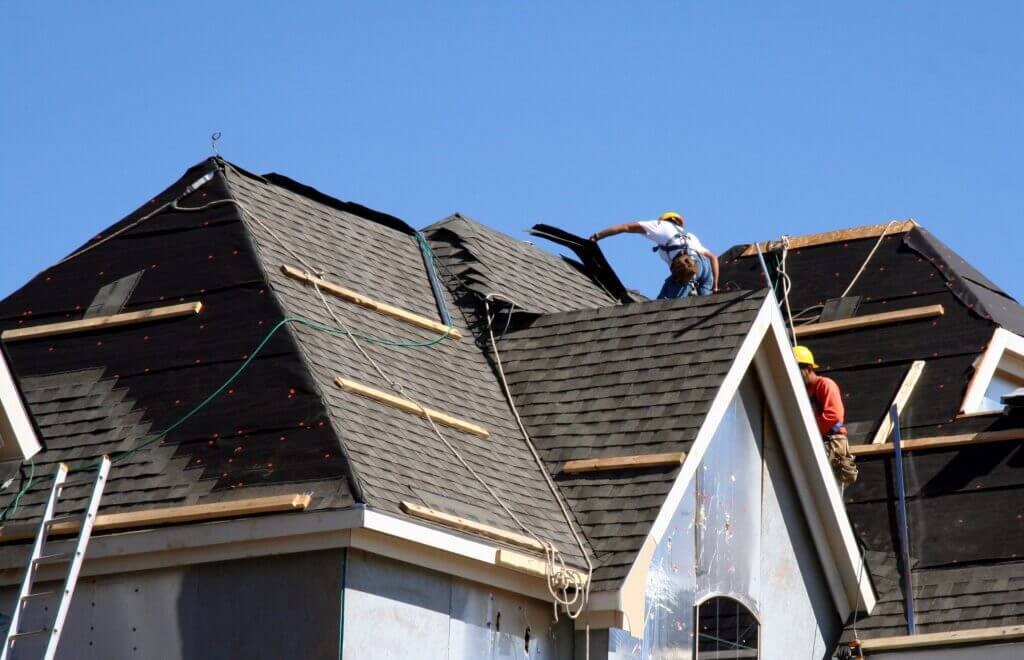
Roof repairs in Atlanta can vary widely in cost, depending on multiple factors. Understanding these can help homeowners anticipate expenses and make informed decisions when addressing roofing issues.
Roof Size and Pitch
The size and pitch of your roof directly impact repair costs. Larger roofs require more materials and labor, while steeper pitches can increase the complexity and safety requirements, leading to higher expenses.
Type of Roofing Material
Different materials come with varying costs:
- Asphalt Shingles: Affordable and widely used, costing between $4.50 and $7.00 per square foot.
- Cedar Shake: Offers a natural look but requires more maintenance, with costs ranging from $6 to $12 per square foot.
- Synthetic Options: These mimic the appearance of natural materials and typically cost between $12 and $20 per square foot.
- Metal Roofing: Known for durability, metal roofs range from $8 to $14 per square foot.
Complexity of the Roof (Valleys, Dormers, Skylights)
Features like valleys, dormers, and skylights add complexity to roofing projects. Each additional element requires precise installation and can increase labor and material costs.
Flashing, Gutters, Chimney Pans
Additional components such as flashing, gutters, and chimney pans are essential for a functional roof, but they add to the overall cost. Depending on the complexity, flashing installation can range from $200 to $500.
Disposal and Clean-up Costs
Removing old roofing materials and cleaning up the site is a necessary part of the process. Disposal fees have increased in recent years, contributing to higher overall project costs.
Visual Table Comparing Low/Mid/High Scenarios
Here’s a more detailed look into low, mid, and high scenarios when it comes to answering the question of how much does a roof cost in Atlanta:
Roof Size | Low-End Estimate | Mid-Range Estimate | High-End Estimate |
1,500 sq. ft. | $6,200 | $7,950 | $9,700 |
2,000 sq. ft. | $8,200 | $10,550 | $12,900 |
2,500 sq. ft. | $10,300 | $13,200 | $16,100 |
3,000 sq. ft. | $12,300 | $15,850 | $19,400 |
These estimates provide a general idea of potential costs based on roof size and material choices.
Understanding how much a new roof costs in Atlanta involves considering various factors, from the size and complexity of your roof to the materials chosen and regional labor rates. By being informed about these elements, you can make better decisions and plan effectively for your roofing project.
Roofing Materials: Cost Comparison and Longevity
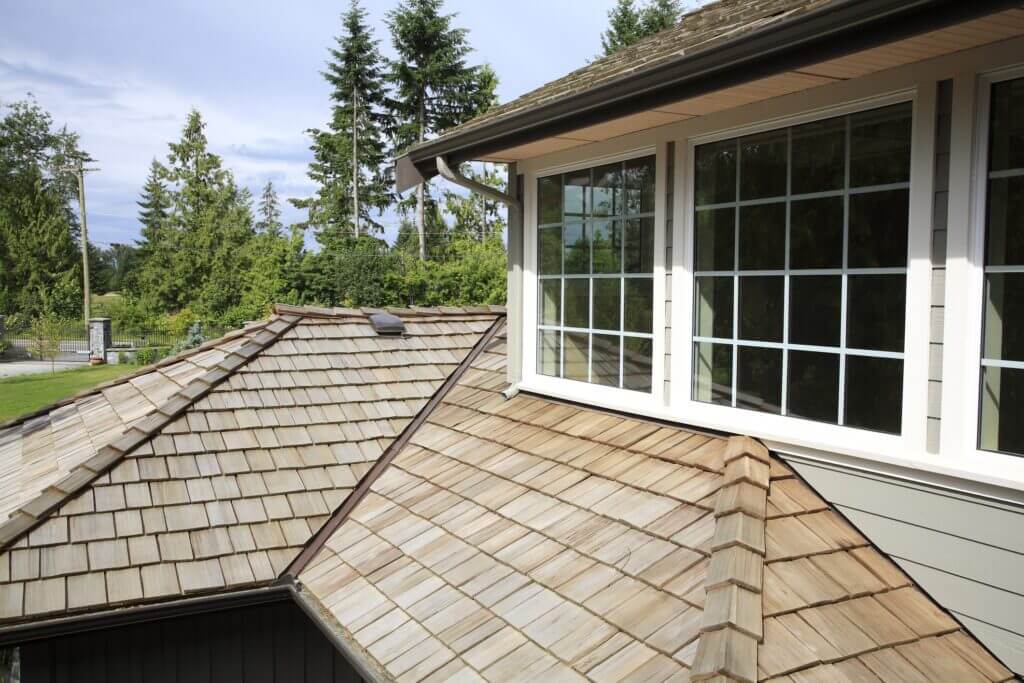
Choosing the right roofing material is pivotal, not just for aesthetics but also for durability and cost-effectiveness. Here’s a breakdown of popular roofing materials in Atlanta:
1. Asphalt Shingles (Most Affordable)
Asphalt shingles are the go-to choice for many homeowners due to their affordability and ease of installation.
- Pros: Cost-effective, easy to install, and available in various colors and styles.
- Cons: Shorter lifespan compared to other materials; susceptible to wind uplift and algae growth.
- Average Price: Approximately $3 to $6 per square foot, including installation.
- Lifespan: Typically lasts 15 to 30 years, depending on maintenance and environmental factors.
2. Cedar Shake (Premium, Natural Aesthetic)
Cedar shake roofs offer a rustic and natural appearance, enhancing the curb appeal of homes.
- Pros: Natural insulation properties, aesthetically pleasing, and can withstand strong winds.
- Cons: Requires regular maintenance to prevent mold and decay; higher initial cost.
- Average Price: Between $7 and $15 per square foot, including installation.
- Lifespan: With proper maintenance, it can last 30 to 50 years.
3. Composite or Synthetic (Durable, Upscale Appearance)
Composite or synthetic roofing materials mimic the look of natural materials like wood or slate but offer enhanced durability.
- Pros: Lightweight, resistant to mold and insects, and often come with extended warranties.
- Cons: Higher upfront cost compared to asphalt; some products may fade over time.
- Average Price: Ranges from $6 to $18 per square foot, depending on the brand and quality.
- Lifespan: Typically lasts 20 to 80 years.
4. Metal and Tile (Less Common, Higher Cost)
Metal and tile roofs are less common in Atlanta but offer longevity and distinct aesthetics.
- Pros: Highly durable, fire-resistant, and energy-efficient.
- Cons: Higher installation costs; tile roofs are heavier and may require additional structural support.
- Average Price: Metal roofs cost between $8 and $24 per square foot, while tile roofs can range from $10 to $20 per square foot.
- Lifespan: Metal roofs can last 40 to 70 years; tile roofs can exceed 50 years with proper maintenance.
How Much Does a New Roof Cost If You Have Insurance?
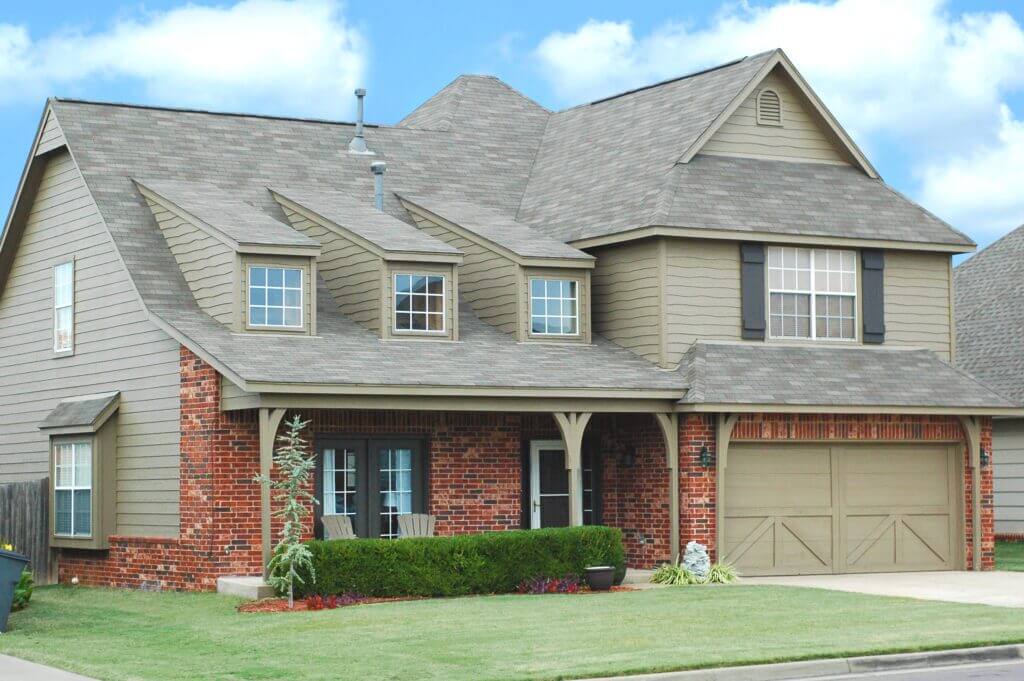
Homeowners’ insurance in Georgia may cover the cost of a new roof, but it largely depends on the cause of the damage. Understanding the specifics of your policy is crucial to determine coverage.
When Insurance May Cover Part or All of a Roof Replacement
Many Insurance policies typically cover roof replacement if the damage results from unforeseen events such as:
- Windstorms
- Hail
- Lightning
- The weight of ice or snow
- Falling trees or debris
- Fire
However, coverage might be limited or denied if the roof was already in poor condition before the event.
What Counts as Storm Damage vs. Wear and Tear
Insurance distinguishes between sudden damage and gradual deterioration:
- Storm Damage: Includes damage from specific events like hailstorms or fallen trees.
- Wear and Tear: Refers to aging, neglect, or lack of maintenance, which is typically not covered.
For instance, if shingles are missing due to a recent storm, it’s likely covered. But if they’re missing because they’ve aged and deteriorated over time, coverage may be denied.
How to Document Your Roof’s Condition for a Potential Claim
Proper documentation can bolster your insurance claim:
- Conduct regular roof inspections and keep records.
- Take clear, timestamped photos of your roof’s condition, especially after storms.
- Maintain records of any repairs or maintenance performed.
This evidence can be invaluable when filing a claim, demonstrating that the damage was sudden and not due to neglect.
The Tightening Landscape of Insurance Payouts in Georgia
Insurance companies in Georgia are becoming more stringent with roof replacement claims. Here’s how:
- Older roofs may only be covered for their depreciated value, not full replacement.
- Policies might exclude certain types of damage or have higher deductibles for roof claims.
- Some insurers require specific roofing materials or installation methods to qualify for coverage.
It’s essential to review your policy details and consult with your insurance provider to understand your coverage fully.
Understanding the costs associated with various roofing materials and the intricacies of insurance coverage in Georgia can empower homeowners to make informed decisions.
Regular maintenance, proper documentation, and clear communication with insurance providers are key to ensuring that, when the time comes, you’re prepared both financially and logistically for a roof replacement.
Understanding Roof Warranties and What They Cover
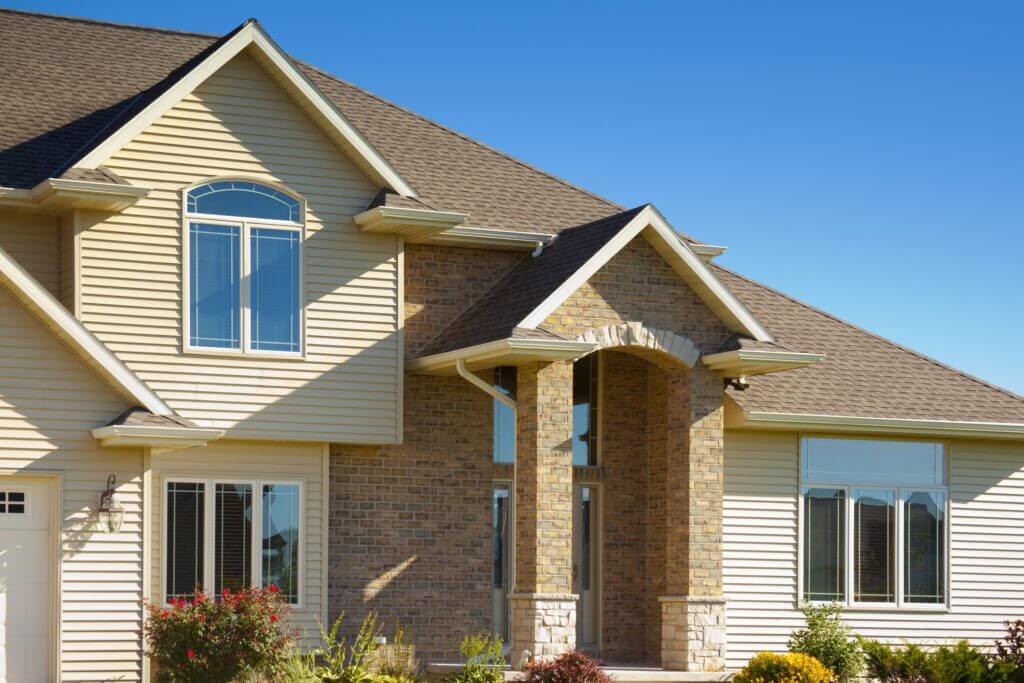
When considering the cost of a new roof in Atlanta, it’s essential to understand the warranties that come with it. Roof warranties can be complex, but grasping their nuances ensures protection against unforeseen issues.
Manufacturer vs. Workmanship Warranties
Roof warranties generally fall into two categories: manufacturer warranties and workmanship warranties.
- Manufacturer Warranty: This warranty covers defects in the roofing materials themselves. For instance, if shingles crack or warp prematurely due to manufacturing flaws, this warranty would apply. These warranties often span 20 to 50 years, depending on the product.
- Workmanship Warranty: Provided by the roofing contractor, this warranty covers installation errors. If your roof leaks due to improper installation, the workmanship warranty would address the repairs. The duration varies but typically ranges from 1 to 10 years.
What’s Covered—And What’s Not
Understanding the specifics of what each warranty covers is crucial. Here’s a comparative overview:
Issue | Manufacturer Warranty | Workmanship Warranty |
Material defects (e.g., shingle cracking) | Covered | Not covered |
Installation errors (e.g., improper flashing) | Not covered | Covered |
Storm damage | Not covered | Not covered |
Regular wear and tear | Not covered | Not covered |
Improper maintenance | Not covered | Not covered |
It’s essential to note that warranties typically don’t cover damage from external events like storms or neglect.
How to Protect Your Investment for Decades
To maximize the lifespan of your roof and ensure warranty validity, here’s what you need to do:
- Regular Inspections: Schedule annual roof inspections to catch potential issues early.
- Proper Maintenance: Keep gutters clean and remove debris to prevent water damage.
- Hire Reputable Contractors: Ensure your roofing contractor is licensed and offers a solid workmanship warranty.
- Understand Your Warranty: Read the fine print to know what’s covered and any maintenance requirements.
By taking these steps, you can protect your investment and enjoy peace of mind for years to come.
The Hidden Costs of Going Cheap
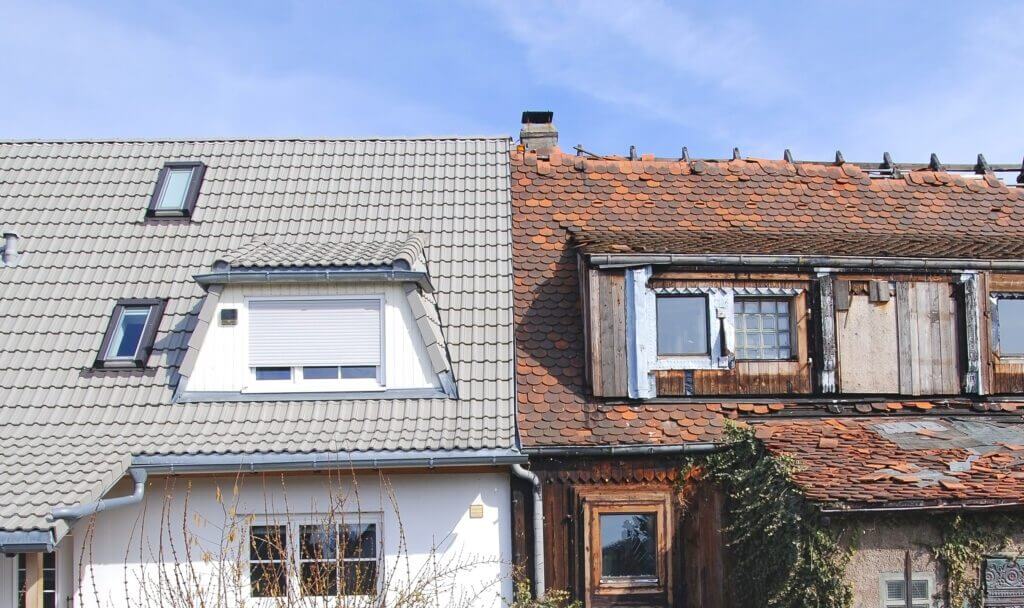
Opting for the lowest bid on a new roof might seem financially savvy, but it can lead to unforeseen expenses and complications down the line.
Let’s explain why.
Poor Installation = Costly Repairs Later
Hiring a budget contractor often means compromising on the quality of the installation. Inexperienced or unlicensed roofers may overlook critical steps, resulting in issues such as misaligned shingles or inadequate sealing.
Such oversights can result in leaks, water damage, and the need for premature repairs or even a full roof replacement.
For instance, improper installation can cause frequent leaks, shortened roof lifespan, and increased energy costs due to poor insulation and ventilation.
Shortcuts With Flashing, Underlayment, or Ventilation
To cut costs, some contractors might skimp on essential components, such as:
- Flashing: Improper installation or reuse of old flashing can lead to water infiltration around chimneys, vents, and skylights. Damaged or missing flashing is a common cause of roof leaks.
- Underlayment: This protective layer between the roof deck and shingles is crucial for moisture protection. Using subpar materials or omitting underlayment can compromise the roof’s integrity.
- Ventilation: Adequate ventilation prevents heat and moisture buildup in the attic. Neglecting roof ventilation can lead to mold growth, increased energy bills, and reduced shingle lifespan.
These shortcuts can significantly reduce your roof’s durability and effectiveness.
Warranty Issues and Insurance Problems
Cheap roofing jobs often come with limited or no warranties. Moreover, insurance companies might deny claims if the roof wasn’t installed to code or lacks proper documentation.
For example, installation defects or the use of low-quality materials may not be covered by your insurance, leaving you to bear the repair costs.
Why You Should Never Choose Based on Price Alone
Selecting a roofing contractor solely based on the lowest bid might seem financially prudent, but it often leads to unforeseen complications and expenses. Here’s a breakdown of the hidden pitfalls associated with choosing the cheapest option:
1. Subpar Workmanship
- Inadequate Installation: Budget contractors may lack the necessary skills or experience, leading to improper installation techniques. Over time, this can result in issues like leaks, poor insulation, and structural damage.
- Lack of Attention to Detail: To cut costs, these contractors might rush through the job, overlooking critical details that ensure the roof’s longevity and performance.
2. Inferior Materials
- Low-Quality Products: Some contractors use substandard materials to offer lower prices. These materials may not withstand harsh weather conditions, leading to premature wear and tear.
- No Material Warranties: Cheaper materials often come without manufacturer warranties, leaving homeowners unprotected if issues arise.
3. Limited or No Warranties
- Absence of Workmanship Warranty: Budget contractors may not provide warranties for their work, meaning any future repairs due to installation errors will come out of your pocket.
- Voided Manufacturer Warranties: Improper installation by unqualified contractors can void manufacturer warranties, leaving you unprotected.
4. Non-Compliance with Codes and Regulations
- Unlicensed Operations: Some low-cost contractors operate without the necessary licenses, increasing the risk of non-compliance with local building codes.
- Lack of Permits: Skipping required permits can lead to fines and complications when selling your home.
5. Potential Scams
- Fly-by-Night Contractors: Some contractors offer low bids to secure upfront payments and then disappear without completing the work.
- Storm Chasers: After severe weather events, some contractors exploit homeowners’ urgency, offering quick fixes at low prices but delivering subpar work.
6. Higher Long-Term Costs
- Frequent Repairs: Poor installation and materials lead to recurring issues, necessitating frequent and costly repairs.
- Premature Replacement: A cheaply installed roof may need replacement much sooner than one installed by reputable professionals, negating any initial savings.
7. Decreased Property Value
- Aesthetic Issues: Shoddy workmanship can result in a roof that detracts from your home’s curb appeal.
- Inspection Failures: If the roof doesn’t meet standards, it can fail inspections during resale, complicating or derailing potential sales.
In summary, it is crucial to understand the intricacies of roof warranties and the potential pitfalls of opting for the cheapest option. By making informed decisions, you can ensure your roof stands the test of time and protects your home effectively.
Final Checklist: What to Ask Before You Say Yes to a New Roof
Before committing to a roofing contractor, it’s crucial to ask the right questions to ensure you’re making an informed decision. This checklist will help you navigate the process and avoid potential pitfalls.
Are They Licensed and Insured in Georgia?
While Georgia doesn’t mandate state-level licensing for roofing contractors, many municipalities require contractors to be licensed to operate legally. Additionally, reputable contractors often obtain voluntary certifications, such as those from the Georgia Roofing Contractors Association (GARCA), which demonstrate a commitment to industry standards.
Regardless of licensing, contractors must carry general liability insurance and, if they have employees, workers’ compensation insurance. This insurance protects you from potential liabilities in case of accidents or damages during the project.
Do They Provide Photos and Written Estimates?
A professional roofing contractor should offer a detailed written estimate outlining the scope of work, materials to be used, labor costs, and a project timeline.
Additionally, providing photos from the roof inspection can help you understand the issues and the proposed solutions. This transparency allows you to compare quotes effectively and ensures there are no surprises later on.
Can They Explain the Cost Breakdown Clearly?
Understanding the components of your roofing estimate is essential. A clear breakdown should include:
- Labor Costs: Charges for the time and expertise of the roofing crew.
- Material Costs: Prices for shingles, underlayment, flashing, and other necessary materials.
- Overhead and Profit Margins: General business expenses and the contractor’s profit.
- Contingency Fees: Funds set aside for unexpected issues that may arise during the project.
A reputable contractor will walk you through each item, ensuring you understand what you’re paying for.
Do They Offer Both Repair and Replacement Options?
Not every roofing issue necessitates a full replacement. A trustworthy contractor will assess your roof’s condition and discuss both repair and replacement options, helping you make an informed decision based on factors like the extent of damage, roof age, and your budget.
Conclusion: Invest Wisely in Your Roof
Understanding how much does a new roof cost in Atlanta isn’t just about numbers, it’s about making informed decisions that protect your home and investment. Throughout this guide, we’ve explored the various factors influencing roofing costs, from materials and labor to warranties and potential pitfalls of choosing the cheapest option.
Remember, a roof is more than just shingles, it’s your home’s first line of defense against the elements. Opting for quality materials and experienced contractors ensures longevity, safety, and peace of mind. While budget considerations are valid, compromising on quality can lead to higher expenses in the long run due to repairs, replacements, and potential damage to your home’s interior.
Before making a decision, ask the right questions:
- Are they licensed and insured in Georgia?
- Do they provide detailed estimates?
- Can they explain the cost breakdown clearly?
- Do they offer both repair and replacement options?
These inquiries can help you gauge the contractor’s reliability and transparency.
If you’re ready to take the next step towards securing a durable and reliable roof, reach out to Mr. Roofer.
Our team is committed to providing top-notch service, quality materials, and expert craftsmanship tailored to your needs. We are here to offer you a comprehensive consultation.
